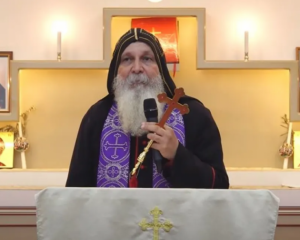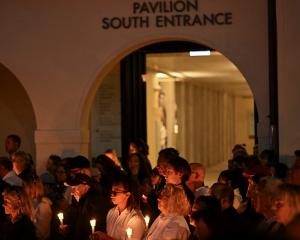Conditions across fire-ravaged Victoria have eased after 12 homes were lost in the Australian state.
This morning authorities downgraded emergency warnings and residents have been allowed back into Scotsburn near Ballarat to assess the damage caused by a fire that surprised crews with its speed and ferocity.
Another four homes were damaged yesterday and 30 sheds destroyed by the blaze that scorched 4600ha.
The Country Fire Authority now considered the Scotsburn fire under control while fast-moving fires in the state's northeast were burning within containment lines.
Emergency warnings in Barnawartha, Indigo Upper, Indigo Valley, Levena and Levena West had been downgraded to watch and act.
The CFA's James Todd said the fires in the northeast, centred around Barnawartha, stretched across 8800ha but would hopefully be under control by the end of today.
"What we've got is fairly stable weather patterns for the rest of the week. We'll have cooler weather and more light breezes, with a lot less chance of fires starting from natural events."
In the southwest, Mr Todd said over 500 personnel had battled to contain the Scotsburn blaze, with authorities set to conduct impact assessments on Monday.
Authorities had earlier said crews were caught out by the volatile conditions at Scotsburn, where a spark from machinery in a paddock is believed to have started the fierce fire.
Three CFA crews were lucky to escape the fast-moving flames that also razed 30 sheds.
Trapped in their trucks when a storm cell ran into the smoke plume at Scotsburn, pushing the fire to the west while the winds hit from the north, they activated sprinklers and ducked under fire retardant blankets until the danger had passed.
Mr Todd said it was relief to see conditions settle but Victorians needed to prepare for warmer conditions closer to Christmas and into summer.
"The forecast for Christmas Eve and Day is low 30s, a bit warmer in the northeast," he said.
"But we're saying to all Victorians that we're only in December - and that means we have two more months of fire ahead of us."












